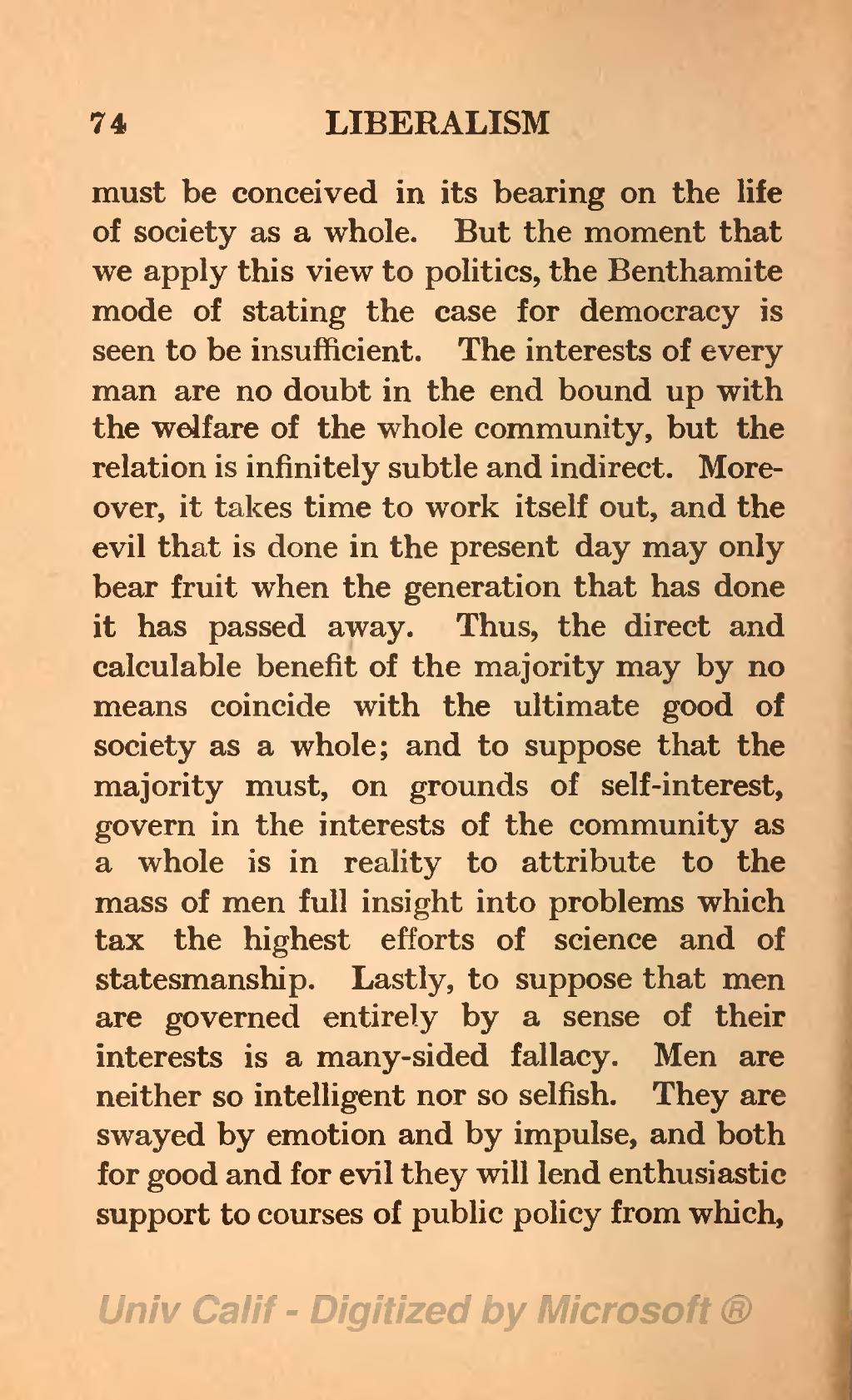must be conceived in its bearing on the life of society as a whole. But the moment that we apply this view to politics, the Benthamite mode of stating the case for democracy is seen to be insufficient. The interests of every man are no doubt in the end bound up with the welfare of the whole community, but the relation is infinitely subtle and indirect. Moreover, it takes time to work itself out, and the evil that is done in the present day may only bear fruit when the generation that has done it has passed away. Thus, the direct and calculable benefit of the majority may by no means coincide with the ultimate good of society as a whole; and to suppose that the majority must, on grounds of self-interest, govern in the interests of the community as a whole is in reality to attribute to the mass of men full insight into problems which tax the highest efforts of science and of statesmanship. Lastly, to suppose that men are governed entirely by a sense of their interests is a many-sided fallacy. Men are neither so intelligent nor so selfish. They are swayed by emotion and by impulse, and both for good and for evil they will lend enthusiastic support to courses of public policy from which,
